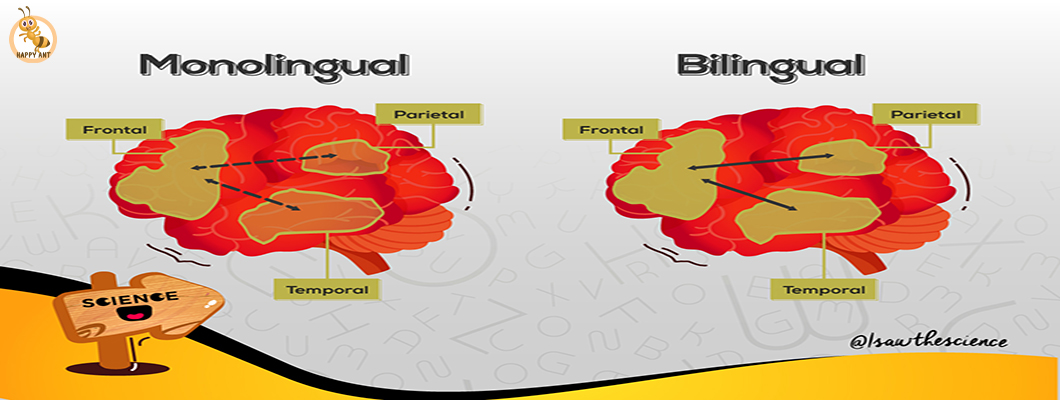
More than half of the world's children speak completely
bilingually. The children of this country should be equal to the children of
other countries, which, in addition to the development of the features of the
bilingual child's brain, will affect the cases he will face in adulthood, such
as studying, traveling to other countries, or looking for a job etc. Learning English depends on all these things. Perhaps bilingual education from
childhood will help the development of brain function. The brain
characteristics of bilingual children have special cognitive advantages
compared to monolingual children, which we will examine in this article.
The features of the bilingual child's brain are:
Bilingual people have better skills such as memory or attention
Memory is used in mental calculations or understanding a subject,
which is related to the temporary storage of information and its processing.
This ability is developed in childhood, and according to researchers, bilingual
children between five and seven years of age perform better than monolinguals,
and their memory is better. In addition, bilingualism in them is beneficial for
the ability to develop brain activities, especially when these activities
interact with each other.
Being bilingual delays dementia
Dementia is delayed along with better attention and memory and
speaking two languages. It can also be said that lifelong bilingualism protects
people from memory and brain deterioration by improving cognitive memory and
delays the onset of this disease. As a result, the researchers emphasize that
the mastery of several languages does not prevent dementia, but apparently
bilingual people get this disease later, but it happens earlier in monolingual
people.
Increasing the recovery process of stroke in bilingual people
Bilingualism also seems to be beneficial for someone who has had a
stroke. People who speak multiple languages are better able to recover their
cognitive function after this complication compared to people who speak only
one language. The researchers conducted this experiment on people who had
suffered a stroke. Bilingual people had a higher percentage of improvement than
monolingual people. Also, their recovery process was very remarkable. Based on
these results that mastering two languages improves brain recovery after
stroke, it can be said that bilingualism is related to people's cognitive
memory.
Preservation of brain youth in bilingual people
Other studies have shown that gray matter in the lower left part
of the brain is denser in people who speak two languages. In addition,
bilingualism promotes better preservation of white matter during aging. In
general, bilinguals use different parts of the brain to perform tasks compared
to monolinguals. What remains a mystery is how these changes in the brain
improve cognitive performance and memory in bilinguals.
Bilingualism prevents distraction
The bilingual mind is activated automatically and unconsciously in
the bilingual child's brain. One constantly manages language interference so as
not to say the wrong word at the wrong time in the wrong language. Different
parts of the brain are used to do different things. Sometimes these mental
activities may be done with distraction. This may not have anything to do with
language, but a focused mind can enhance trying to listen to something in a
noisy environment or doing a visual task. Therefore, the use of two languages
in speaking strengthens memory, which can ultimately increase various skills in
a person.
Can teaching two languages to children delay forgetting in them?
Parents worry that their child may merge languages. Don't worry
about anything because the English language team at the Happy Ent site has been
able to provide educational packages with bilingual cartoons by examining
psychological issues and the needs of the audience. It is designed for
different ages. So that learning is a part of the child's entertainment. This
greatly increases the percentage of learning and minimizes the percentage of
being forgotten.
Just as no child has forgotten the cartoons and stories of his childhood, and children can learn bilingualism very well. Of course, we note that combining languages is a sign of the skill or competence of bilingual people.
The advice of the Happy Ant language department group is to be persistent and patient. Of course, bilingual children have a harder time than children who learn only one language. They are learning two sets of vocabulary and speech sounds. Creating a practical goal for learning a second language in our country, where Persian is the dominant language, can be challenging. The child must feel that language is useful and use it.
All the items in Happy Ant's packages inspire the child to use the
concept, which leads to the child becoming more targeted and interested in the
English language.
References
bbvaopenmind

Leave a Comment